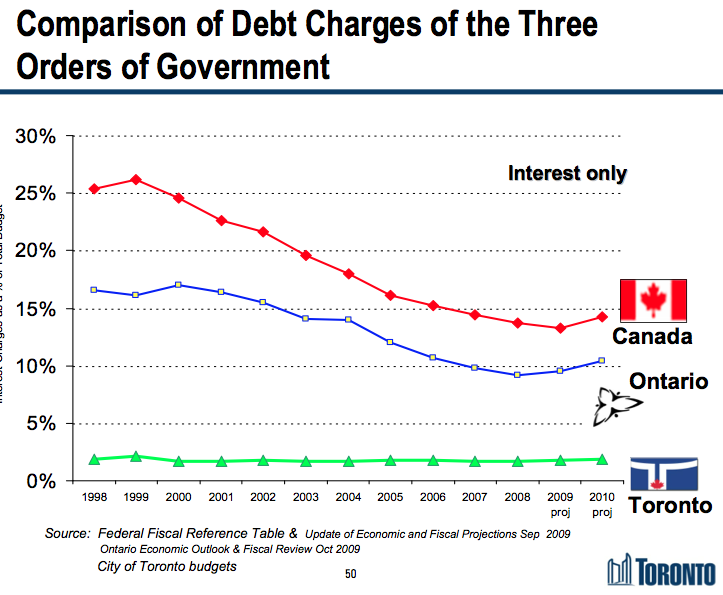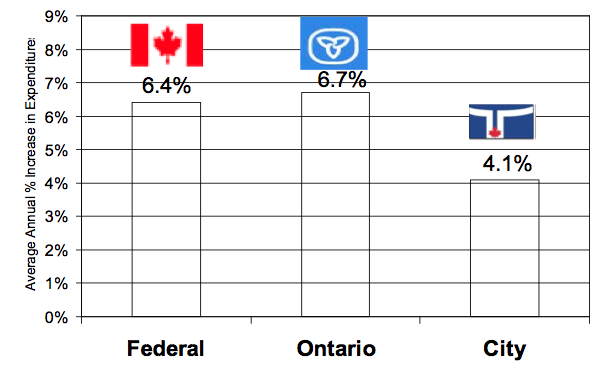The Toronto Star’s Royson James:
The budget committee meets Tuesday to vote on motions aimed at avoiding a showdown on kids’ programs. Will the torrent of complaints from Toronto residents derail the so-called “gravy train� And is Ford on a course correction?
His council opponents are in a holding pattern. Both Gord Perks and Adam Vaughan said Monday they won’t table any budget changes until the mayor plays his hand and outlines his fixes.
“There’s no need to start making deals yet. We need the third-quarter report (on the surplus, assessment growth and investment incomes, for example), we need to see the changes from the budget committee and the executive committee,†Perks said.
When the budget deals are negotiated, expect a big push to save TTC routes earmarked for service reductions, and protection of the Wheel-Trans service for ambulatory dialysis patients.
“It’s the mayor’s budget. He doesn’t have the votes. He will have to fix it,†said Vaughan.
via James: Councillors push back against flawed budget | Toronto Star.
Rob Ford’s first real budget as mayor is gradually falling to pieces. Every indication is that the budget passed by council in February will look very different from the one Rob Ford first presented a few weeks back.
This will be a significant shift from the way things have traditionally been done. While there has always been a bit of public give-and-take with city budgets — a tweak here, a shift there — never before has a post-amalgamation mayor faced such strong opposition from council. Just as Ford has blazed a new trail by being a mayor who routinely and sometimes overwhelmingly loses council votes, this mayor will also break new ground should he prove to be a mayor who loses complete control of the budget narrative in February.
This is, of course, mostly a good thing, especially because the other alternative is going down a road where important programs get cut for essentially no reason. But there’s a ring of sadness around it. Because this is a time in Toronto where political energy and engaged residents should be focused on the way forward. On building and growing and making things great.
But instead, we’re actually having public arguments about whether the city should continue putting $600,000 per year toward cost-shared programs that provide breakfast for kids who need it. It’s hard not to feel like this whole process is, in the long-term, a big waste of our collective civic time.
We can’t solve systemic capital budget issues by nickel-and-diming the operating budget
Most of the rationale we’re hearing from the mayor and his allies surrounding the 2012 budget is overly-simplistic: we need to cut the budget because the budget is too big. But beyond that, I have heard a slightly more compelling narrative from the budget chief and former chief-of-staff Nick Kouvalis, who hung around for the last hour of this week’s episode of The City with Josh Matlow and expressed this view repeatedly.
To paraphrase, the rationale goes like this: we have to drastically cut the operating budget to increase our debt payments so we can then pay for capital projects and eliminate all our debt and then, I guess, enjoy a happy fiscally-conservative utopia.
There is, at least, some sense to this. Our debt payments have been mounting. We’ll spend $400 million of property tax revenues on debt payments and interest alone in 2012. Our capital obligations total a ridiculously huge number going forward,and very little of that total is nice-to-have items like new parks and arenas. Most of it is the cost of simply keeping things from falling over.
But, ultimately, trying to work our way out of a capital budget crunch by pruning the operating budget is a losing battle. It’s like trying to dig your way out of a deep hole with a spoon. Our capital budget problems aren’t self-made. Despite what some on council will try to tell you, David Miller didn’t push for that new streetcar order because he loved spending money: he did it because the only alternatives were an expensive and risky rebuild of the current streetcar fleet to extend their lives, or a move away from streetcars toward buses, which probably would have cost more in the long-term. (And rightly pissed off a lot of people, who still remember the last time the government tried to kill streetcars.)
In fact, the bulk of necessary spending over the next decade relates to costs associated with maintaining and (ever so slightly) expanding the TTC. We’re facing these problems entirely because the province shirked its responsibilities and has been slow to come back to them.
And to those who will say provincial funding is impossible because the Ontario government is facing its own significant debt and deficit crisis, you’re letting them off the hook too easily. The province has budgeting techniques and revenue tools at its disposal that the city can only dream of. And transit is not one of those things that the province gets to defund when the economy goes bad. Because transit is a critical part of that economy.
But, still, maybe you’re cynical enough to believe that the provincial government will never understand that, and never come to the table. Even then, we’re still facing an issue that cannot be solved by shaving dollars off the operating budget and plowing the savings into capital. We can’t  fund the long-term capital needs of one of North America’s largest transit systems solely on a property tax base that brings in about 4 billion a year. It doesn’t work and it will never work. If the province won’t play ball, then we need to start looking at new revenues — road tolls and sales taxes — that can pay for the kind of transit Toronto needs.

